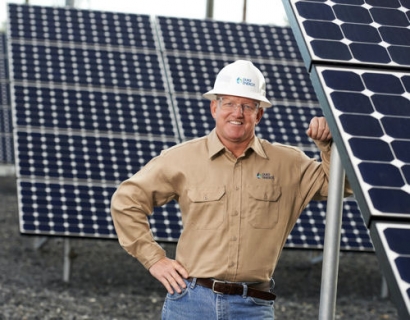
“More than half of Duke Energy’s generation in the Carolinas is carbon-free. But we know many customers want more,” said Stephen De May, Duke Energy's North Carolina president. “Renewable Advantage gives them an easy option to customize their own energy mix.”
The $3 fee is used to buy renewable energy and is added to customers’ bills. The company projects Renewable Advantage will consist of 95% solar and 5% biomass. It's estimated that 25% ofthe generation will come from North Carolina renewable energy facilities.Renewable Advantage will use the Green-e® certification program to track all purchases.
In addition, Duke Energy will donate 50 cents from every $3 block of energy purchased to NC GreenPower’s Solar+ Schools program.
NC GreenPower’s Solar+ Schools is open to all K-12 North Carolina schools and was introduced by the nonprofit in 2015 to support educational renewable energy projects in local communities. Each grant recipient receives a 5-kW array with a weather station, data monitoring equipment and a STEM curriculum package. As of the end of 2019, NC GreenPower has impacted nearly 26,000 students at 32 schools in 27 unique counties. In addition to the education benefits, Solar+ Schools provides approximately $700-$800 in annual electricity savings per school.
“We are now in the sixth year of ourSolar + Schools program, supporting 10 more schools in 2020. It’s been a true honor to see firsthand the positive impact the educational projects are having on the students. Without donor support, our program wouldn’t be able to provide this opportunity to schools in our state. We are so grateful for all of our contributors,” said Vicky McCann, vice president of NC GreenPower.
Duke Energy has a history of supporting the Solar+ Schools effort. In 2015-2016, a $300,000 grant from Duke Energy allowed eight schools in the state to install solar panels on school property. Also, a similar Duke Energy program in North Carolina helps large customers accomplish renewable energy goals. UPM Raflatac's manufacturing factory in Henderson Countywas the first manufacturing facility in North Carolina to match its entire energy usage with renewable energy.

